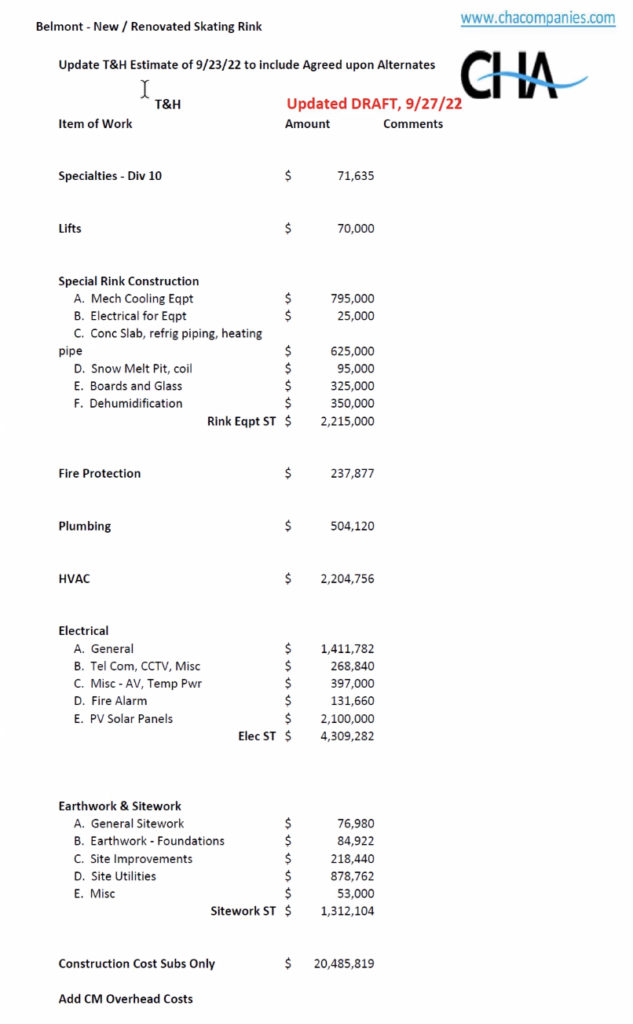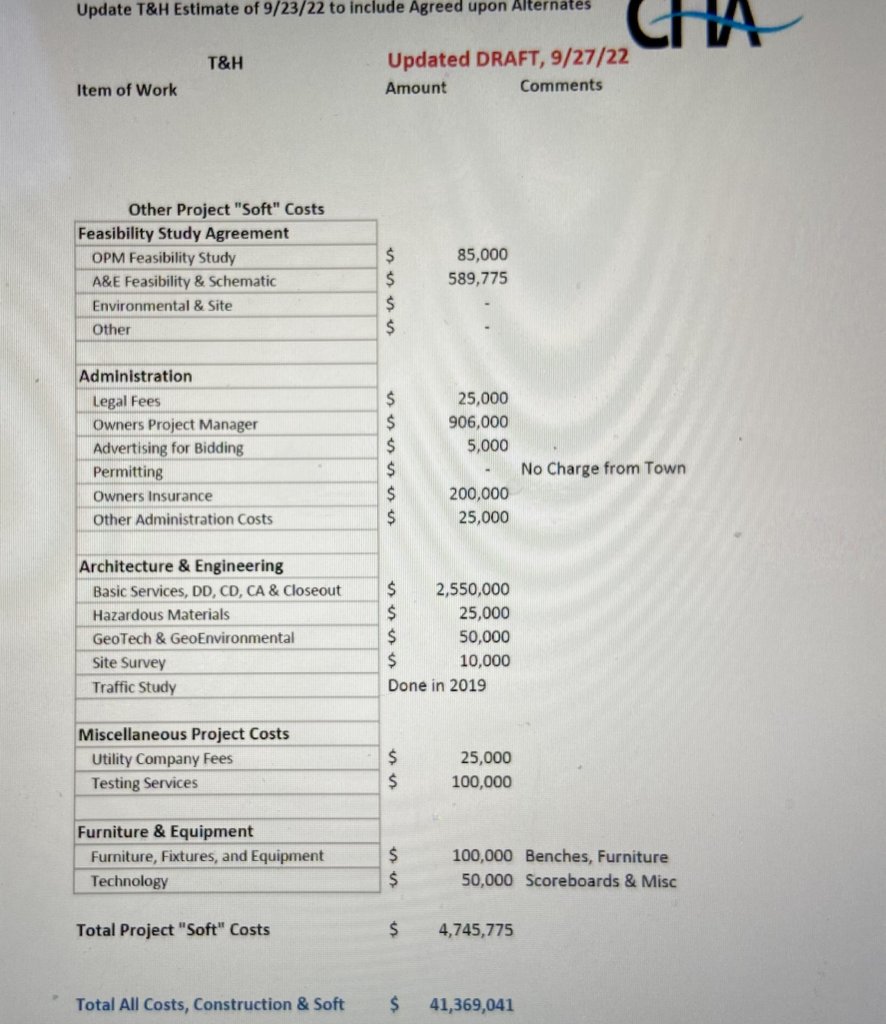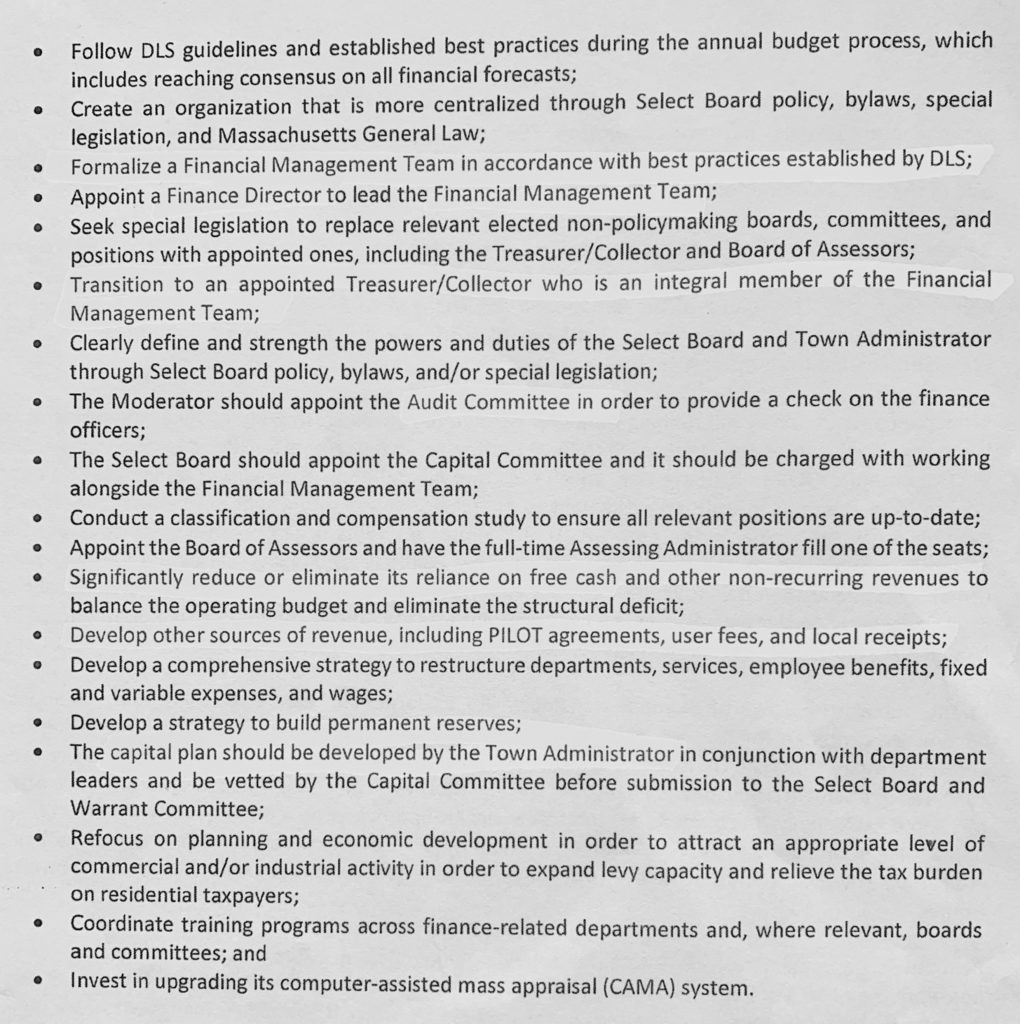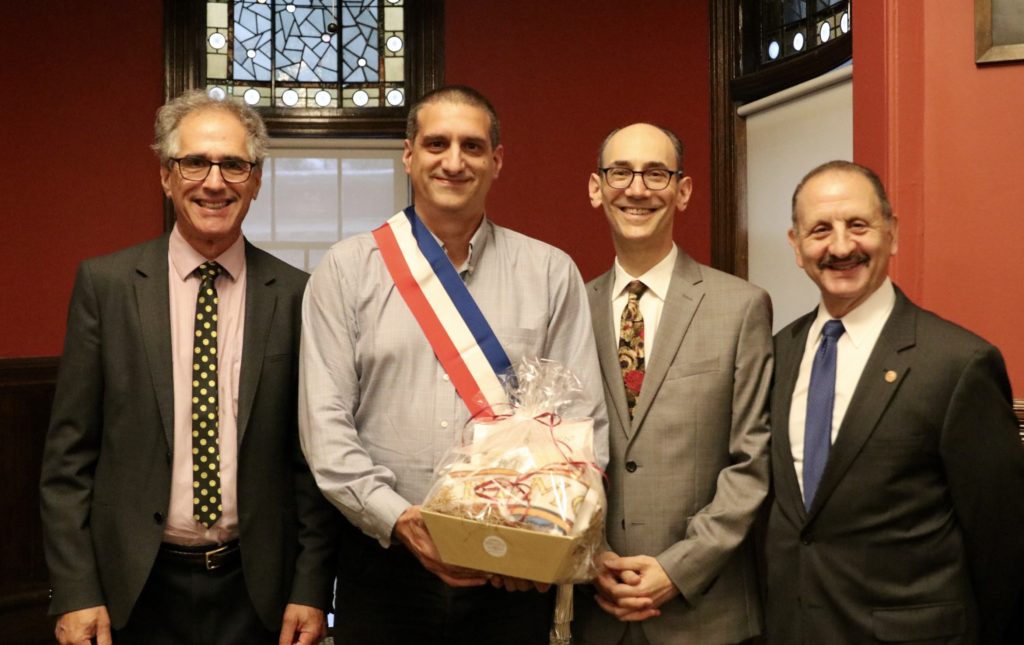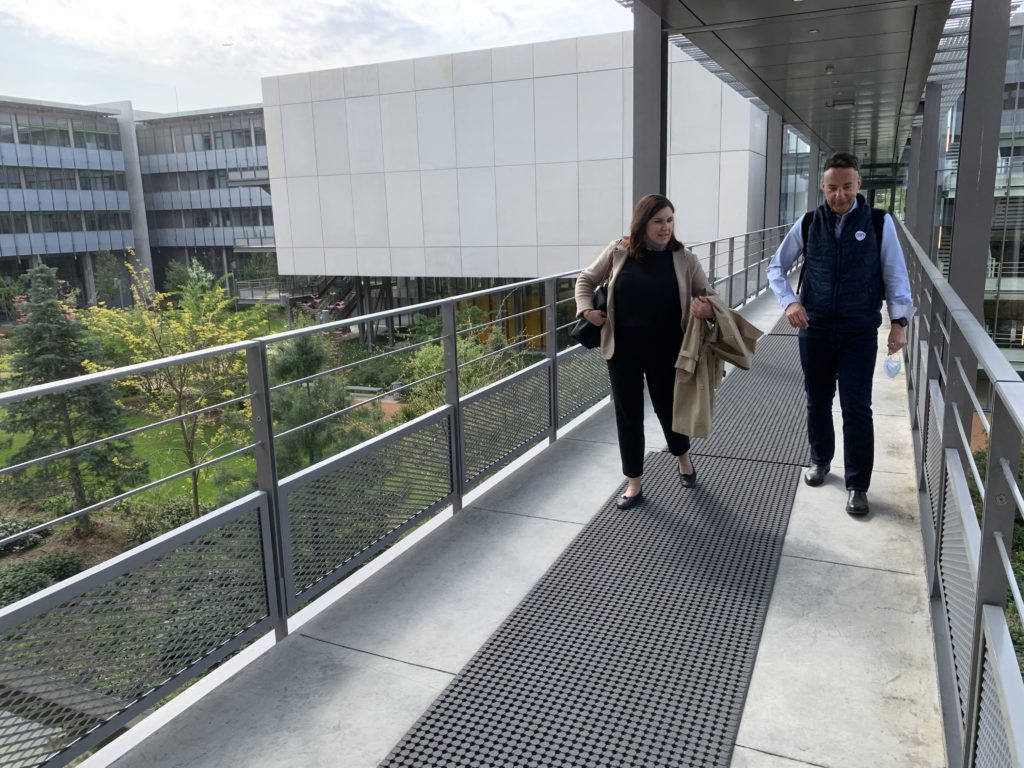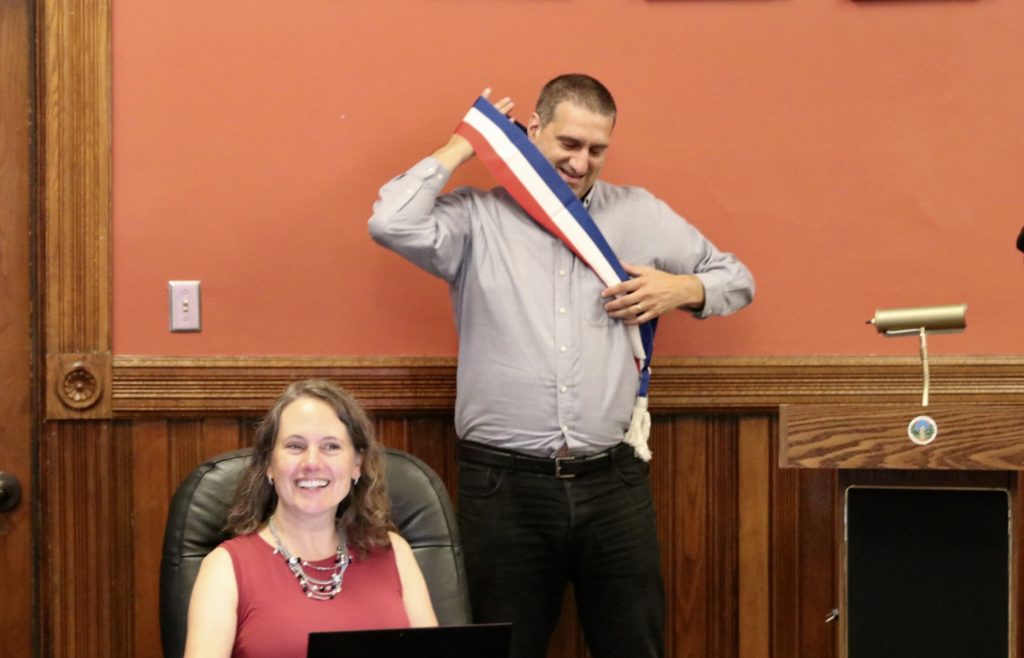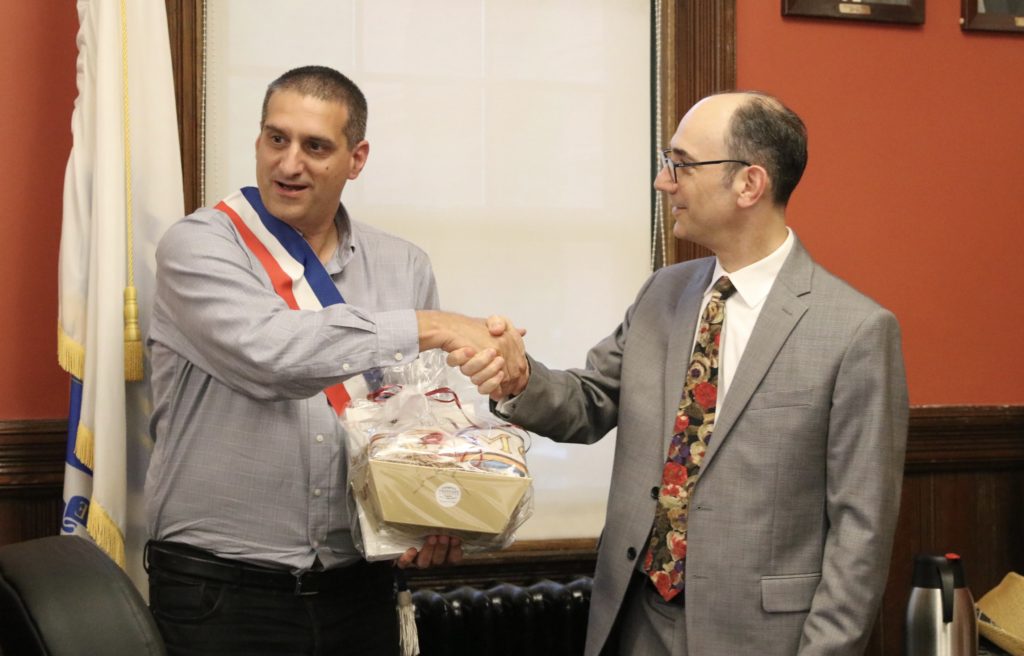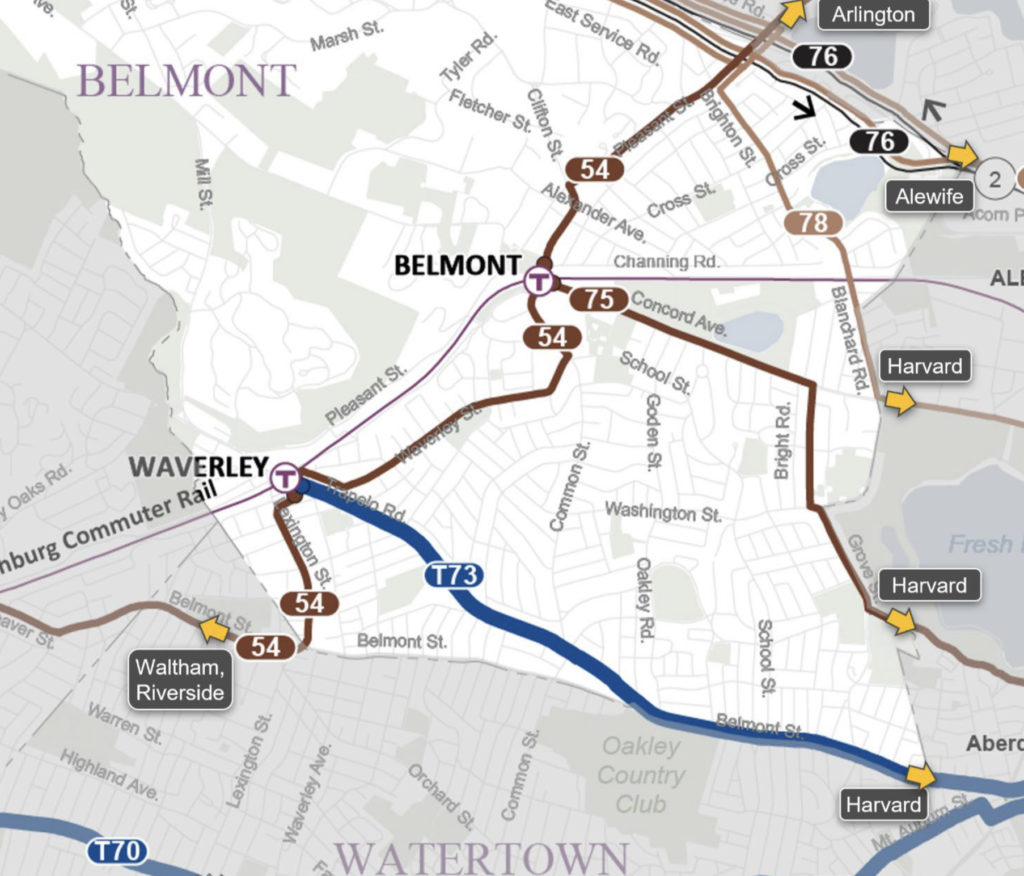Photo: The old and the new: The existing building and a rendering of the new structure.
Belmont voters gave a rounding “yes” to a new public library building as the debt exclusion to pay for the new structure passed by more than 1,800 votes on the Nov. 8 state election ballot. The final tally was 6,763 yes against 4,916 no votes.
The same voters narrowly defeated a separate debt exclusion for a new skating rink/athletic facility to replace the delipidated ‘Skip’ Viglirolo Rink. More than 300 votes defeated it; 5,613 yes to 5,978 no.
But rink supporters may get a second bite of the apple as at least one of the three Select Board members said the debt exclusion could be back before voters at the annual Town Election in April 2023.
The two debt exclusion questions increased interest in the election as nearly two-thirds of Belmont’s 18,187 registered voters cast 11,974 ballots in person or via mail.
Preliminary results for all state-wide races and the four ballot questions can be found on the Town Clerk’s website here
Due to changes in state law, the public got their first look at a new two-stage voting process. The first vote tally – a long tape with results posted at each of the eight precincts – was day-of-the-election voting. A substantial number of votes from early and mail-in voting were calculated after the polls closed.
When the eight precinct tallies were counted, the library inched ahead, with the rink holding a slim 17-vote lead. A dozen supporters and interested residents hovered around the second-floor vestibule of the Selectmen’s Room as Town Clerk Ellen Cushman announced the more complete but still preliminary results.
(Final results will be certified when remaining votes from overseas, military personnel, and mail-in ballots with postmarks of Nov. 8 and earlier are tabulated.)
The third time was a charm for the supporters of the new library after two failed attempts to bring debt exclusions before voters in the past two decades. The new building, designed by Oudens Ello Architecture, will be built on the library’s current location at 336 Concord Ave. to replace the existing 56-year-old structure.
“This a huge victory for Belmont to get this library passed,” said Paul Roberts, who is associated with the “Vote Yes Library” campaign and was active on social media platforms presenting facts on the library project. He praised the work of the Board of Library Trustees, trustee Kathy Keohane and Library Director Peter Struzziero for “keeping a new library and bringing it back again and again so that we could bring this across the line.”
“It’s going to be a treasure,” said Roberts of the new library.
The cost of the 41,500-square-foot building is $39.5 million, with at least $5 million of that price tag reduced by an aggressive fundraising campaign from the Belmont Library Foundation.
An 11th-hour campaign to defeat the debt exclusion vote did not catch traction with the broader community.
What helped get the new library project to perform so well was its time before the community. The campaign began in 2017 with dozens of public meetings and forums over the past five years to review programming, design, and financing. The committee spent two years evaluating the current library’s building infrastructure and usage data, interviewing library staff and patrons, conducting wide-reaching community surveys, facilitating focus groups, meeting with community members, town organizations, and other key stakeholders, and holding multiple community forums, according to the trustees.
“[The library project] was very well known. Everyone who heard about the new building knew something about it,” said Roberts.
From treasure to disgrace
The defeat of the new rink proposal was surprising because there was no organized opposition. Of the two projects, the rink requires replacement, with the structure’s infrastructure and interior in dire condition.
Reactions from rink supporters to the vote were a mix of exasperation and despondency.
“It’s going to cost the town (an additional) $250,000 a year to field four high schools [hockey] teams,” said Mark Haley, chair of the Municipal Skating Rink Building Committee, after the vote was announced. “That’s a disgrace. This is disgusting.”
If the library proposal could be described as a marathon taking several years to present the plan to the public, the rink project was a sprint, having five months to finalize the design and finances and holding a handful of meetings with the public.
But Cheryl Grace, who headed the “Yes For Rink” committee, didn’t believe the project needed additional time before what was a large number of residents who were reluctant to support the proposal.
“There were a lot of people who were saying, ‘it’s not used by many people, so why should we put our money as a town into something that a small group uses’ and there’s nothing we can do to convince them. Time wouldn’t change those opinions,” Grace said.
What hampered the rink proposal was being on the same ballot as the library debt exclusion.
“I think the decision to put both of these (questions) on the ballot created some complexity, and clearly, there were voters who chose one and not both,” said Roberts. “Clearly, there were voters who said, ‘I can support one of these, I can’t support both of them’.”
And finally, there was the question of voter exhaustion, according to Lucinda Zuniga of the Belmont Youth Hockey Association.
“I think there’s fatigue from all the other projects, from the library, Middle and High School, police station, DPW, and the rest. And we were the last capital project remaining,” she said.
But as the sting of defeat was felt by supporters, a ray of hope that the proposal could be resurrected was provided by Belmont Select Board Chair Mark Paolillo who was in attendance at Town Hall.
“I think you have to think about [putting the rink back before the voters] long and hard, but it’s so close that it’s a split vote in town,” said Paolillo as Town Hall cleared out.
Paolillo said once the final tally in late November is certified and if the margin remains at 300 votes, “it’s pretty much a tie,” he said, noting that the Select Board – which placed the two debt exclusions on the same ballot – will need to talk to Town Moderator Mike Widmer to see if the Rink Building Committee can continue “for now.”
“So perhaps we go back out in the spring and continue to educate the residents about the need,” said Paolillo. “Clearly, we need a new building.

